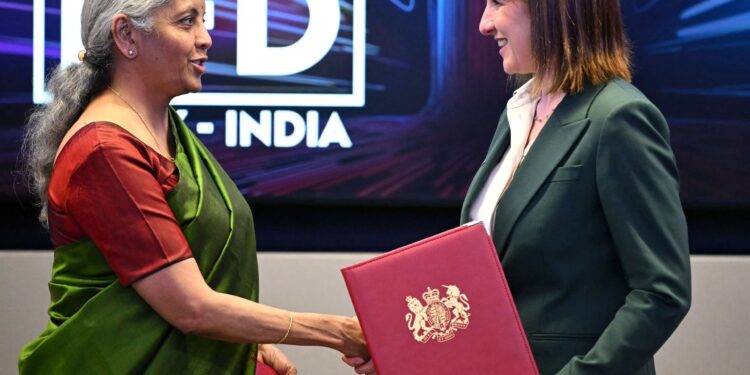In a move that was more important to Britain since its exit from the European Union, London and New Delhi announced on Tuesday 6 May that a free trade agreement was reached, after 3 years negotiations and witnessed many stops.
This agreement comes in the midst of the escalation of global trade tensions, especially with US President Donald Trump’s announcement of the increase in customs duties on a number of imports.
According to Reuters, the agreement aims to raise the volume of trade exchange between Britain and India to 25.5 billion pounds (about 34 billion dollars) by 2040, while improving market access and reducing customs restrictions on a wide range of commodities, including whiskey, chocolate, biscuits, lamb, and salmon.
Reducing customs duties and stimulating exports
According to the French Press Agency, the agreement states that 85% of Indian customs duties on British goods will be canceled within 10 years. As for British cars, it will reduce the fees imposed on them from more than 100% to 10%, as part of a specific import share that has not been officially announced.
The fees are on Al -Waski and thein Marshawi, who formed a major disagreement point in the negotiations, will decrease from 150% to 75%, then to 40% in 10 years, according to British newspapers and reported by the French Press Agency.
According to Mark, I was from the “Scotch Yousaki Association”, these cuts may contribute to increasing British whiskey exports by one billion pounds (about $ 1.33 billion) within 5 years, while providing 1,200 new jobs.
A limited effect on gross domestic product
Despite the importance of the agreement in terms of political and strategic size, its direct impact on the British economy will be limited, according to the British government estimates reported by Reuters. It will only add 4.8 billion pounds (about 6.4 billion dollars) to the GDP of 2800 billion pounds (about 3730 billion dollars).
While the British continue their talks with the United States to cancel American customs duties (10% on most commodities, and 25% on cars and minerals), this agreement with India still represents the major deal since Brexit, in terms of market size and geo-economic impact, according to British Prime Minister Kiir Starmer in statements reported by the French Press Agency.



